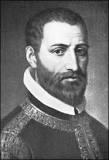Planning worship?
Check out our sister site, ZeteoSearch.org,
for 20+ additional resources related to your search.
- |
User Links
Search Results
Hear our prayer, O God; Turn not from us
Appears in 2 hymnals
Hear our prayer, O God; Turn not from us
[Hear our prayer, O God]
Appears in 103 hymnals Composer and/or Arranger: George Whelpton Tune Key: D Major Incipit: 33332 44443 35553 Used With Text: Hear our prayer, O God
[Hear our prayer, O God]
[Hear our prayer, O God]
Appears in 17 hymnals Composer and/or Arranger: Jacob Arcadelt Tune Key: F Major Incipit: 32312 33554 3232 Used With Text: Hear Our Prayer, O God
[Hear our prayer, O God]
Hear Our Prayer, O God
Hymnal: The United Methodist Hymnal Music Supplement II #221 (1993) Lyrics: Hear our prayer, O God,
Turn not from us;
Hearken unto the voice of our supplication.
O hear our prayer, Lord, hear our prayer!
Amen. Topics: Service Music Prayer Responses Languages: English Tune Title: [Hear our prayer, O God]
Hear Our Prayer, O God
Hear our prayer, O God
Hymnal: The New Century Hymnal #769 (1995) Lyrics: Hear our prayer, O God,
hear our prayer, O God;
incline your ear to us,
and grant us your peace. Topics: Service Music Tune Title: [Hear our prayer, O God]
Hear our prayer, O God
George Whelpton
1847 - 1930 Composer of "[Hear our prayer, O God]" in The New Century Hymnal
George Whelpton
Jacob Arcadelt

1505 - 1568 Composer of "[Hear our prayer, O God]" in The United Methodist Hymnal Music Supplement II Jacob Arcadelt born in the Netherlands towards the end of the 15th century, died in Paris. The story that he was a pupil of Joaquin Deprès is probably untrue. In 1540 he was admitted into the Pontifical Choir at Rome, and in 1555 (?) entered the service of Cardinal Charles of Lorraine, Duke of Guise, whom he followed to Paris. Arcadelt was on of the many Flemish composers who migrated to Italy; he helped to found the "great" Roman school, and was one of Palestrina's most distinguished forerunners. he united French delicacy of sentiment, Flemish mastery of musical form, and Italian culture in quite an exceptional way, and was at once one of the most important and prolific composers of his day. Together with Willaert and Verdelot, he was one of the founders of the madrigal. His first book of 53 madrigals (Venice, 1538) reached it sixteenth edition in 1617, and was followed by five other books. If in his church compositions Arcadelt's style is of almost heroic grandeur, and shows the most complete mastery over all the intricacies of counterpoint (albeit he seems to have despised the then popular "Netherlandish tricks"), in his Italian madrigals we discover perhaps the first dawn of the sentimental element in music. His French chansons, on the other hand, are perfect little cabinet-pieces of contrapuntal elaborateness. Notwithstanding the glorious musical epoch which followed close upon his death. Arcadelt's works were long looked upon with the greatest veneration' Frecobaldi wrote an organ piece on a them "del Signore Arcadelt," and even Liszt wrote a pianofote piece on an Ave Maria of his.
Cyclopedia of Music and Musicians by John Denison Camplin, Jr. and William Foster Apthorp (Charles Scribner’s Sons, 1888)
Jacob Arcadelt


 My Starred Hymns
My Starred Hymns


